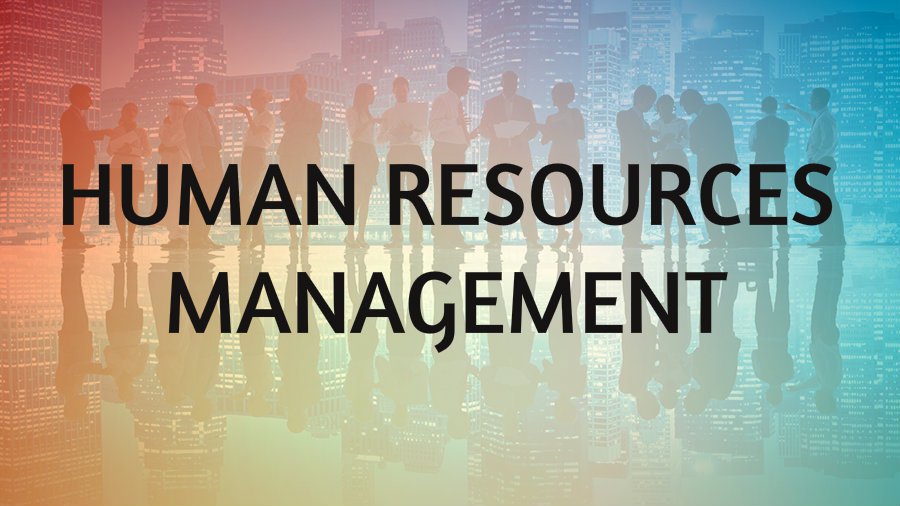Human resources Management is a management function that helps managers recruit, select, train and develop members for an organization. Human resources management is management functions concerned with hiring, motivating, and manufacturing people in an organization. It focus on people in organization.Human resources management is concerned with the people’s dimension in organisations.
Meaning of Human Resources Management
Some below points are enough to tells meaning of HRM.
Organisations are not mere bricks, mortar, machineries, or inventories. It is the people who staff and manage organisations. HRM involves the application of management functions and principles. The functions and principles are applied to acquainting, developing, maintaining and remunerating employees in organisations.
Decisions relating to employees must be integrated. Decisions on different aspects of employees must be consistent with other human resources decisions. Decision made must influence the effectiveness of an organisation must result in betterment of services to customers in the form of high-quality products supplied at reasonable costs.
HRM functions are not confined to business establishments only. They are applicable to non-business organisation, too. Such as education, health care, recreation, and the like.
Definition of Human resources management
Human resources management is the planning, organizing, directing and controlling of the procurement, development, compensation, integration, maintenance and separation of human resources to the end that individual, organisational, and social objectives are accomplished.
HRM is a series of integrated decisions that form the employment relationship; their quality contributes to the ability of the organisations and the employees to achieve their objectives.
HRM is concerned with the people dimension in management. Since every organisation is made up to people, acquiring their services, developing their skills, motivating them to higher levels of performance and ensuring that they continue to maintain their commitment to the organisation are essential to achieving organisational objectives.
Thus, HRM refers to a set of programmers, functions, and activities designed and carried out in order to maximize both employee as well as organisational effectiveness.
Scope of Human Resources Management
Human resources management is a board concept. Personal management and Human resources development are a part of HRM. The scope of HRM is all major activities in the working life of a worker from the time of his or her entry into an organisation until he or she leaves- come under the purview of HRM.
Their specially activities are –
- HR planning
- Job analysis and design
- Recruitment and selection
- Orientation and Placement
- Training and development
- Performance appraisal and Job evaluation
- Employee and executive remuneration
- Motivation and communication
- Welfare
- Safety and health
- Industrial relations and the like
- For the sake of convenience etc.
Objectives of Human Resources Management
The primary objectives of HRM is to ensure the availability of a competent and willing workforce to an organisation.
There are mainly four objectives of HRM
- Societal Objectives
- Organisational Objectives
- Functional Objectives
- Personal Objectives
Societal Objectives
The societal objectives of Human resources management seek to ensure that the organisation becomes socially responsive while the organisation becomes socially responsive.
To be ethically and socially responsible to the needs and challenges of the society while minimizing the negative impact of such demands upon the organisation to use their resources for the society’s benefit in ethical ways may lead to restrictions.
Societal objectives’s some supporting Functions are :-
- Legal compliance
- Benefits
- Union-management relations
Organisational Objectives
Organisational objectives make sure that Human resource management is not a stand alone department, but rather a means to assist the organisation with its primary objectives.To recognize the role of HRM in bringing about organisational effectiveness. It is only a means to assist the organisation with its primary objectives.
Organisational objectives’s some supporting Functions are :-
- Human resources planning
- Employee relations
- Selection
- Training and development
- Appraisal
- Placement
- Assessment
Functional Objectives
Functional objectives remind the HRM that it has only functional value and should not become expensive at the cost of the organisation it serves.
To maintain the departments’s contribution at a level appropriate to the organisation’s needs. Resources are wasted when HRM is either more or less sophisticated to suit the organisation’s demands.
Functional objectives’s some supporting Functions are :-
- Appraisal
- Placement
- Assessment
Personal Objectives
Personal objectives assist employees in achieving their personal goals. Personal objectives of employees must be met if workers are to be maintained, retained and motivated. Otherwise, employee performance and satisfaction may decline and employee may leave the organisation.
To assist employees in achieving their personal goals enhance the individual’s contribution to the organisation.
Personal objectives’s some supporting Functions are :-
- Training and development
- Appraisal
- Placement
- Compensation
- Assessment
Computer Application In Human Resource management
Information is recongined as an important source. A wide variety of information needs of a business are recongined into Management Information System (MIS). The computer is an electronic tool used to collect, organise analyse, interpret and communicate vast amounts of information with great speed.
Computers make possible a paperless working system and electronic data interchange facilitated the speedy, secured and accurate transfer of documents across the globe.
There are many benefits for computer in HRM department.
- E-Business
- Neural Networks
- Aspects of E-HRM
- E-Job Design and Job Analysis
- E-Human Resources Planning
- E-Recruitment
- E-selection
- E-Performance Management
- E-Training and Development
- E-Compensation Management
- E-Grievance Redressal
- E-HR records
- E-HR Information
- E-HR audit
So, that we can say that computer is important gadget for Human resources department and it is save time to HR employee to execute their works.
At last words, Human resources management plays important role in any organisation to growth their business because every firm are need to manpower. They can specialize in finding, recruiting, training, and developing employees, as well as maintaining employee relations or benefits.
Read more :-
For Contact with us you can like our Facebook page to and Subscribe to the YouTube channel.













